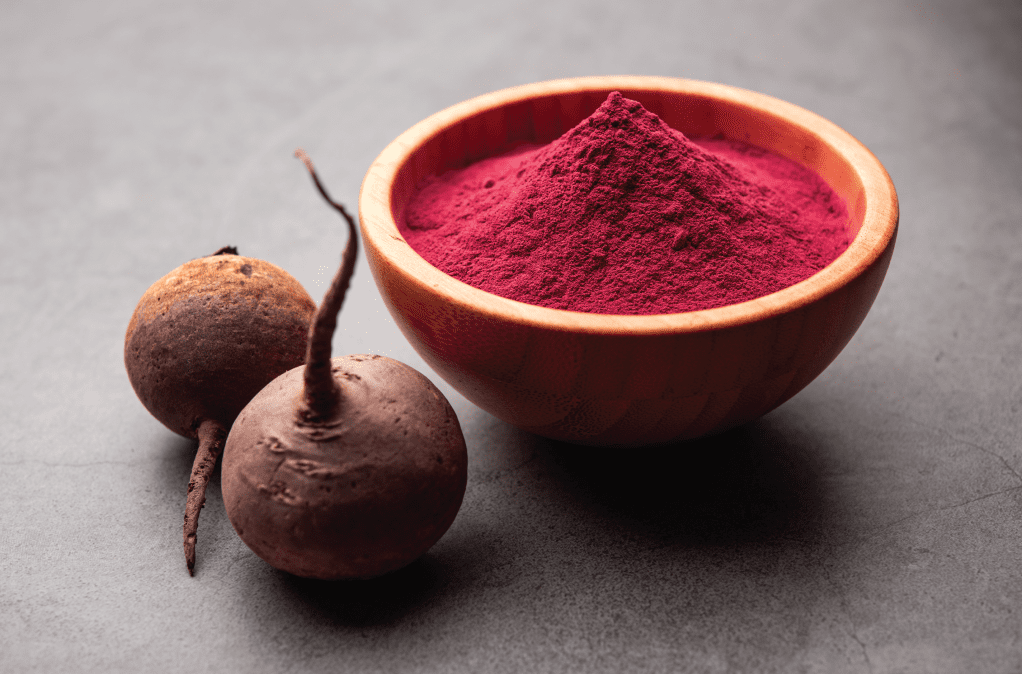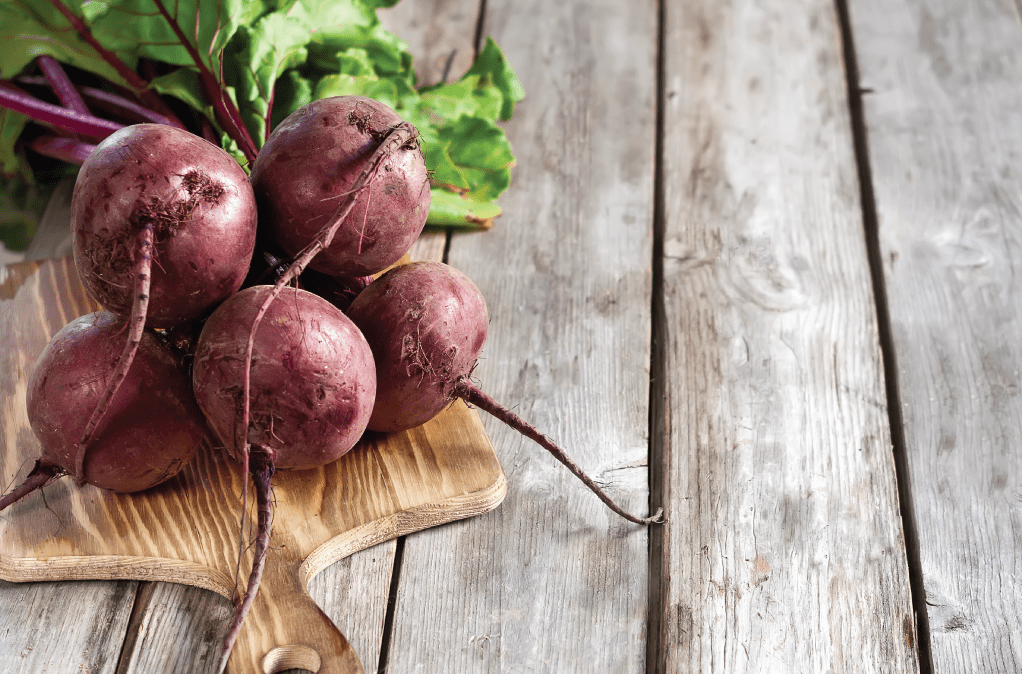Table of Contents
Beetroot is a great ally in the kitchen when it comes to making salads, stews, creams, smoothies, garnishes, and more. It is a very popular plant that is known by several names: table beet, garden beet, sugar beet, or simply “beet”. It’s easy to identify by its characteristic reddish color and today is considered one of the best superfoods to improve our health, give us energy, and delay the natural deterioration of our brain. How is it that this tuber, once humorously consumed by gophers in classic cartoons, is now one of the pillars of nutrition and well-being?[This article, “4 Amazing Benefits of Beets: The Powerful Superfood” was originally published in NewsHealthWatch]
Beets: A humble food and a folk medicine staple before they became famous
The beetroot, whose scientific name is Beta vulgaris, is the root of a plant that is cultivated in different parts of the world. For thousands of years it has been part of the human diet and has also been used in traditional folk medicine in different cultures.
This superfood, which can be of different colors (but most are red or purple), was domesticated at the dawn of civilization and there are records that its cultivation was present among the ancient Egyptians. But those who discovered the capabilities of beets for natural medicine were the Romans, who used it to treat headaches or toothaches.
For its pigments, beetroot has also been used for cosmetic purposes, and women of several generations used it as lipstick or natural makeup to enhance their image and the features of their faces, something that was rather common before the days of industrialization of beauty products.
Today, due to its deep red color, extracts from the beet plant are commonly used as a natural colorant and to obtain sugars in the food industry, but beyond its role in bringing color to the world, beets are a superfood that can offer surprising benefits to everyone’s health.
As a superfood, beetroot is a profusely rich source of nutrients such as protein, beta-carotene, vitamins B and C, sucrose, fiber, minerals, and carbohydrates. In addition, it has a significant amount of antioxidants, flavonoids, triterpenes, and carotenoids. Recent studies have found that beet consumption offers amazing health benefits, especially in cases of cardiovascular diseases, hypertension, cancer, hepatic steatosis, and chronic kidney disease.
It is not necessary to wait until you have an illness to take advantage of the benefits that beets can offer our bodies. Let’s take a look at some of the benefits that this root can provide us.
A blood pressure reducer
Beetroot has benefits for lowering blood pressure, maintaining blood pressure stability, and maintaining adequate blood glucose levels, especially after high-intensity physical exercise. In addition, beetroot extract, alone or accompanied by the consumption of Vitamin C, is effective in the recovery of the cardiovascular system after exercise in studies carried out on healthy people.

A natural anti-inflammatory
Inflammation is a natural response of our body to physical stimuli such as blows or infections and is usually accompanied by pain in normal circumstances it reduces quickly. but when inflammation persists or becomes chronic it can cause long-term damage. Hence the importance of consuming anti-inflammatories, such as beets, which are wholly or in supplements have been shown to have effects that considerably reduce inflamed areas.
In recent decades, beetroot has become a reliable alternative to drugs for the treatment of inflammation, reducing the negative effects that chronic inflammation can have on health. Experiments carried out on mice have shown that betanin treatments suppress the precursor molecules of inflammation, preventing them from being generated.
A complementary anti-oxidant
One of the positive effects on the body after the consumption of beetroot and its extracts that has attracted the most attention in recent years is its capacity as an antioxidant agent. Oxidation is a normal phenomenon in our body that helps us reduce the risk of infection by attacking germs. But excess oxidation, known as oxidative stress, attacks healthy cells rather than germs and other harmful microorganisms. Hence the importance of consuming foods that help us maintain an adequate balance, such as beets.
The antioxidant properties of this superfood are due to its high content of nitrogenous compounds called betalains or betanins, which are the compounds that also give it its characteristic red or purple color.
A study conducted by the Northumbria University School of Health and Life Sciences on the beet indicates that “its components, especially betalain pigments, show potent antioxidant, anti-inflammatory and chemopreventive activity in vitro and in vivo.“
A cognition enhancer that helps our brain
Another of the positive effects of consuming beetroot and its derivatives is that it can help us reduce or delay the deterioration of cognitive functioning that occurs with age, that too often manifests as clinical dementia or presents as Alzheimer’s disease.
Beetroot does not cure these cognitive diseases that mostly affect the elderly, but its compounds do help prevent them and their symptoms appear in early stages, this occurs because beetroot improves cerebrovascular blood flow that keeps cognitive functions active.
A 2018 study by the University of South Florida in Tampa found that betanin could eventually help slow the buildup of misfolded proteins in the brain, a process associated with Alzheimer’s disease. Scientists say this discovery could lead to the development of drugs that could alleviate some of the long-term effects of the disease, the world’s leading cause of dementia.

The most bioavailable (and portable) way to get your beets
Beetroot in its different varieties is a superfood that can be consumed naturally by preparing it in the kitchen in countless recipes available in books and on the internet. Including beets in our diet provides multiple benefits. This is where bioavailability comes into play. Importantly, bioavailability is the ability of a substance to be absorbed by our body so that it can be used to benefit our state of health.
The Northumbria University study, noted above, indicates that “For a food component to be considered beneficial to health, it must be bioavailable in vivo, that is, after ingestion, the active compounds are absorbed through the gastrointestinal tract and are available in circulation, in amounts sufficient to be used by cells“. And the important bioactive compounds in beets, such as betalains, have been shown to have high bioavailability.
What does all of this mean? Basically, the nutrients in the beetroot superfood can be easily absorbed by our body and are better utilized when we eat them or take them through supplements.
Superfoods such as beets are becoming the protagonists and key ingredients of natural products to improve our health and physical performance, both for athletic performance and for functioning in daily life. Kalen Caughey, an entrepreneur who, together with his father (a doctor of biochemistry) created the superfood brand VOKE Energy, said that they decided to include beets as a key element because “we were looking for ingredients that had been proven in the scientific literature to improve our metabolism, help us to think more clearly, and to give us enhanced energy. And beets, along with other superfoods, allow us to further increase the quality and value proposition associated with what we have to offer our customers.”

Other great superfoods that complement beets
Beetroot is a superfood that is good for us if we include it in our diet and its positive effects on our bodies and minds can be magnified if it is accompanied by other superfoods that complement it. For an example of just one synergistic possibility, guarana seeds, which give us productive energy, work along with beets to enhance their effectiveness.
Other beet-friendly superfoods include caffeine from green tea leaves, which contributes to our focus and ability to concentrate, and acerola, which benefits our immune system with its essential nutrients.
…And the beet goes on… The benefits of beets
Now that we know more about beetroot and some of the many benefits it brings to our health, we can give it its rightful place in our health and wellness arsenal and take advantage of it for much more than its flavor and because it makes our dishes look more attractive. We can now take this superfood wherever we go thanks to the fact that we can find it in different presentations or included as an ingredient in today’s better nutritional supplements.
Further Resources For Reference:
Trend alert! Why beets are the hot new ‘superfood’ – Los Angeles Times
Top 5 health benefits of beetroot – BBC Goodfood
Beetroot: Benefits and nutrition – Medical News Today
Helpful Links:
https://www.ncbi.nlm.nih.gov/pmc/articles/PMC5295087/
https://www.ncbi.nlm.nih.gov/pmc/articles/PMC4425174/
https://www.ncbi.nlm.nih.gov/pmc/articles/PMC4425174/
https://www.ncbi.nlm.nih.gov/pubmed/19661447
4 Amazing Benefits of Beets: The Powerful Superfood Is An Original NewsHealthWatch Article

